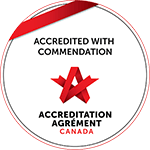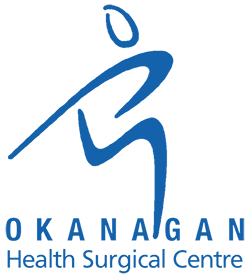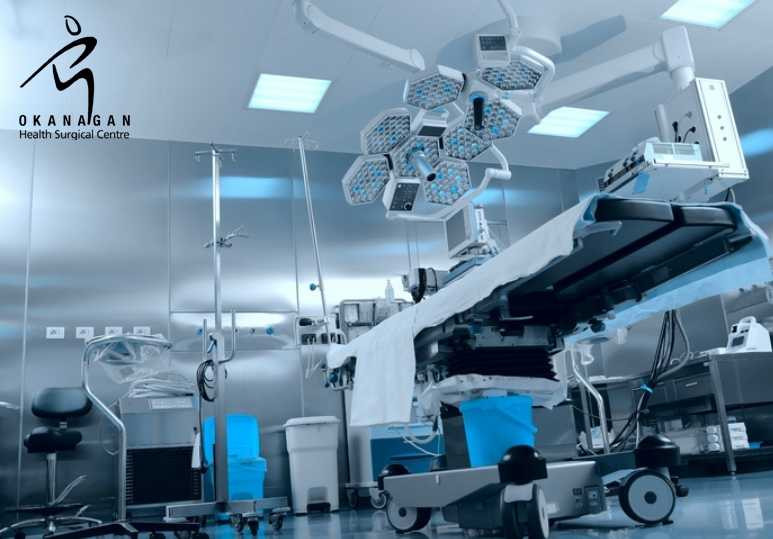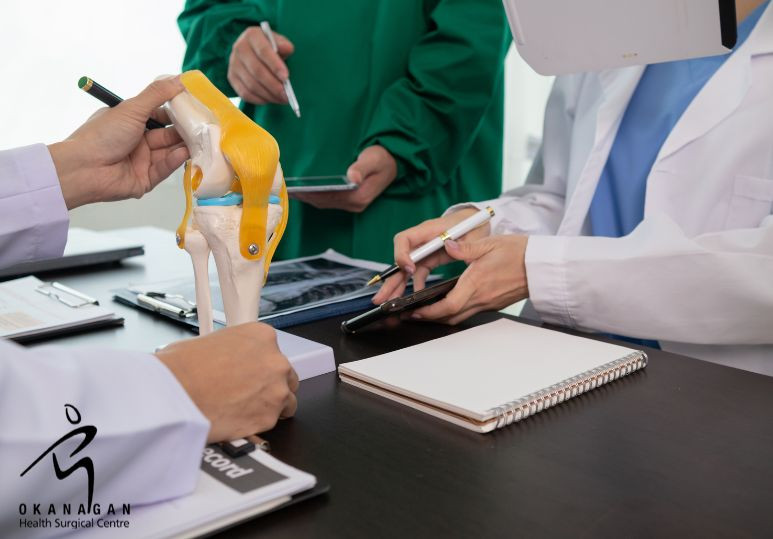Embarking on a surgical journey involves more than just the day of the procedure. It's a collaborative effort between you, your surgeon, and the healthcare team to ensure a safe and successful experience. At Okanagan Health Surgical Centre, we recognize the significance of thorough pre-screening in preparing patients and their families for the road ahead. Let's dive into the key aspects of this preparatory phase, guiding you through the importance of asking questions, maintaining health, and understanding the steps leading up to the day of surgery.
It is SAFE to ask
As the first step in your surgical journey, communication is paramount. Don't hesitate to speak with your surgeon and the healthcare team about any concerns or questions you may have. Understanding your care is crucial, so ask questions freely. We believe that every patient deserves clarity, and our team is here to explain your care in a way that resonates with you. Take the time to carefully read all pre-operative and post-operative instructions, empowering yourself with the knowledge needed for a smooth journey.
For your upcoming surgery, education is key. Take the initiative to learn about the procedure and involve your support team in the process. The journey to a successful surgery begins with being informed and engaged.
Three weeks or more before surgery
In the weeks leading up to your surgery, practicing good fitness habits becomes vital. Incorporate upper body stretches and low-weight strength training into your routine to enhance posture and strength, setting the stage for a smoother recovery. Simultaneously, focus on maintaining a balanced and healthy diet. Crash dieting or excessive alcohol intake can impact overall well-being, making a nutritious diet essential.
One significant aspect often overlooked is smoking cessation. For at least two weeks before surgery, strive to be smoke-free. Smoking can impede the healing process, and taking this proactive step contributes to a safer and more successful surgical experience. As your surgery date approaches, meticulous planning becomes crucial. Schedule time off work, arrange support at home, and address any health concerns promptly. Additionally, pre-operative testing may be necessary, and these results will be carefully reviewed by your surgeon to ensure optimal readiness.
Two to three weeks before surgery
This period is marked by continued planning and preparation. While maintaining a healthy lifestyle, it's important not to overexert yourself, especially in the case of strenuous exercises. Good nutrition remains a focus, with attention to supplements like Vitamin C, Vitamin D, and Zinc.
For those with diabetes or taking specific medications, the pre-screening nurse will contact you two weeks before surgery. Providing detailed health history ensures that your care plan is tailored to your individual needs.
Remaining smoke-free is non-negotiable during this phase. A proactive approach to hand-washing and avoiding large crowds reduces the risk of infections that could impact your surgery. It's a time to prioritize your health and minimize potential risks.
One week before surgery
As your surgery date draws near, practical steps come into play. Ensure your prescriptions, including pain medications and antibiotics, are filled within the designated timeframe. Confirm transportation arrangements, as you'll need a responsible adult to stay with you for the first 24 hours post-surgery.
For those traveling to the Kelowna area, arrangements may need to be made for an overnight stay. Confirm that all necessary lab results and paperwork are submitted, and maintain healthy habits while refraining from strenuous exercises.
One day before surgery
This crucial phase requires meticulous attention to detail. Pack essentials for the day, including paperwork, medications, and contact information for your ride and support person. Shower using fragrance-free soap, and refrain from using scented products or cosmetics. Follow specific guidelines regarding alcohol and smoking to optimize your readiness.
The day of surgery
Dress comfortably and leave valuables at home, arriving on time for the registration process. The admitting nurse will guide you through preparations, including a physical examination and discussions with your surgeon and anesthesiologist. Be prepared for potential delays in the operating room and anticipate a length of stay based on your specific surgery and recovery needs.
In conclusion, your surgery journey is a collaborative effort that begins well before the day of the procedure. Through effective pre-screening, we aim to provide you with the tools and information needed for a safe and successful experience. Navigating this journey together ensures that you are well-prepared, informed, and supported every step of the way. At Okanagan Health Surgical Centre, your well-being is our priority, and we look forward to guiding you through a positive surgical experience.
Written on behalf of Okanagan Skin Care Centre.
FAQs:
Q: Why is smoking cessation necessary before surgery?
A: Smoking impairs the healing process and increases the risk of complications. Being smoke-free for at least two weeks before surgery significantly enhances your ability to recover successfully.
Q: Can I continue taking prescribed medications before surgery?
A: Follow your surgeon's guidance on medications. Certain medications may need to be stopped one week before surgery, particularly those that increase the risk of bleeding. Always inform your surgeon of any allergies or sensitivities.
Q: What should I pack for the day of surgery?
A: Pack all necessary paperwork, contact information for your ride and support person, any prescribed medications, and essential personal items. Wear loose, comfortable clothing and avoid jewelry. Remember to leave valuables at home.







